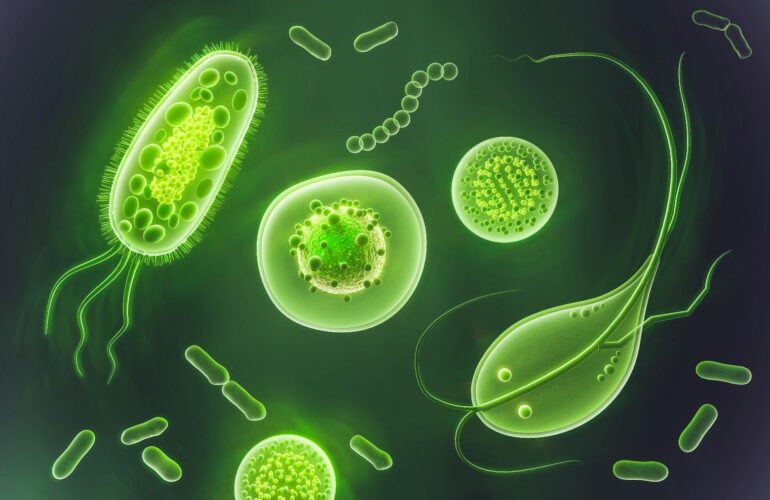Does Hydrosalpinx Affect Pregnancy ?
Understanding Hydrosalpinx
Hydrosalpinx is a condition that occurs when the fallopian tubes become blocked and filled with fluid. This can be caused by inflammation, infection, or scarring, and can have a significant impact on a woman’s fertility. While some women with hydrosalpinx may not experience any symptoms, others may have pelvic pain, heavy menstrual periods, or difficulty getting pregnant. It is important to understand the causes, symptoms, and treatment options for hydrosalpinx in order to address the potential impact it may have on fertility and pregnancy.
One of the main effects of hydrosalpinx is its impact on fertility. When the fallopian tubes are blocked or filled with fluid, it can prevent an egg from traveling to the uterus and a sperm from reaching the egg, making it difficult to conceive. In addition, the inflammation and scarring associated with hydrosalpinx can also affect the quality of the eggs and embryos, further reducing the chances of a successful pregnancy. Understanding the impact of hydrosalpinx on fertility is crucial for women who are struggling to conceive and are seeking treatment options.
Treatment options for hydrosalpinx may include surgical interventions to remove or repair the affected fallopian tubes, as well as fertility treatments such as in vitro fertilization (IVF). It is important for women with hydrosalpinx to seek medical evaluation and discuss their options with a healthcare provider to determine the best course of action for their individual situation. By understanding the causes and effects of hydrosalpinx, women can make informed decisions about their reproductive health and take proactive steps to address any potential challenges related to fertility and pregnancy.
Impact Of Hydrosalpinx On Fertility
Hydrosalpinx is a condition that occurs when a fallopian tube becomes filled with fluid due to a blockage or damage. This condition can have a significant impact on a woman’s fertility, as it can make it difficult for an egg to travel from the ovaries to the uterus, where it needs to be in order to be fertilized.
When a woman has hydrosalpinx, the fluid that builds up in the fallopian tube can create an environment that is inhospitable to the implantation of a fertilized egg. This can significantly reduce the chances of a successful pregnancy occurring. In some cases, the presence of hydrosalpinx may also increase the risk of miscarriage.
If left untreated, hydrosalpinx can have a long-term impact on a woman’s fertility, making it more difficult for her to conceive naturally. However, there are treatment options available that can help to improve fertility outcomes for women with this condition.
Effect Of Hydrosalpinx On Pregnancy
Hydrosalpinx, a condition where the fallopian tube becomes filled with fluid, can have a significant impact on pregnancy. The presence of hydrosalpinx can hinder a woman’s ability to conceive and carry a pregnancy to full term.
When a woman has hydrosalpinx, the fluid-filled tube can create a hostile environment for an embryo to implant and grow, leading to a higher risk of miscarriage.
In some cases, women with hydrosalpinx may find it challenging to become pregnant in the first place, as the condition can interfere with the normal release of an egg from the ovary and its journey through the fallopian tube for fertilization. It’s essential for women with hydrosalpinx to seek medical evaluation and consider treatment options if they are hoping to conceive and have a successful pregnancy.
Success Rates Of Pregnancy After Hydrosalpinx Treatment
Hydrosalpinx refers to a condition in which the fallopian tubes become blocked with fluid, often due to inflammation or infection. This can have a significant impact on a woman’s fertility, as it can prevent the egg from travelling through the tube to be fertilized by sperm. It can also affect the success rates of pregnancy, even after treatment for hydrosalpinx.
One of the most common treatments for hydrosalpinx is a surgical procedure called salpingectomy, in which the affected fallopian tube is removed. This can help to improve the chances of pregnancy, as it removes the blockage that was preventing the egg from reaching the uterus. In some cases, the other fallopian tube may also be affected, requiring further treatment to improve fertility.
Research has shown that the success rates of pregnancy after hydrosalpinx treatment can be significantly improved. In fact, studies have found that the chances of getting pregnant after treatment for hydrosalpinx can be as high as 70-80%. This highlights the importance of seeking treatment for hydrosalpinx in order to improve fertility and increase the likelihood of a successful pregnancy.
Prevention And Management Of Hydrosalpinx
Hydrosalpinx is a condition in which a woman’s fallopian tubes become blocked, usually due to a buildup of fluid. This can have a significant impact on a woman’s fertility and her ability to conceive and carry a pregnancy to term. Fortunately, there are steps that women can take to prevent and manage hydrosalpinx, as well as treatment options that can improve their chances of getting pregnant.
For women who have already been diagnosed with hydrosalpinx, there are several management and treatment options available. In some cases, the fluid in the fallopian tubes can be drained through a minimally invasive procedure, which may improve the chances of natural conception or increase the success rates of assisted reproductive technologies such as in vitro fertilization (IVF). However, in more severe cases, surgery to remove the affected fallopian tube may be necessary to improve fertility outcomes.




